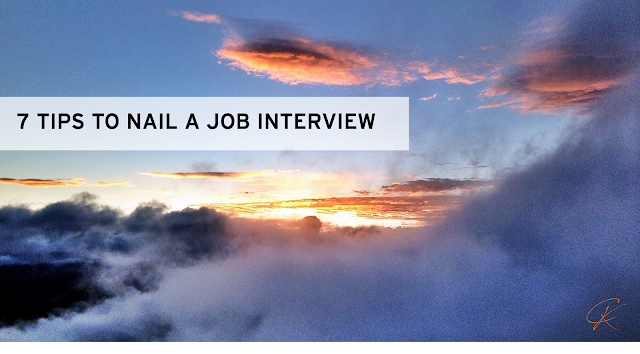At the nonprofit where I work, I do a lot of hiring and interviewing. An average job posting receives 50 applications. I’ve combed through thousands of resumes and sat in hundreds of interviews at this point. And I’m here to tell you, there’s a right way and a wrong way to interview. Follow these seven tips nail a nonprofit job interview.
Before meeting with candidates, we follow a designated application evaluation process using rubrics to assure equitable, objective review. The hiring manager is responsible for culling through the cover letters and resumes. I specifically look for someone who is excited about the job AND about the organization. Leading candidates provide relevant examples of related work and tie it back to the work they would do here, both in their application materials and their interviews (related: How To Make Your Nonprofit Job Application Stand Out).
The top 10-15 candidates move on to phone interviews. From there, we select 4-5 candidates for in-person interviews with a team of 2-4 people, generally other staff who will be working closely with the new hire. From there, we’ll sometimes do one more final round. Last, we check references and make a job offer.
No matter how hard we try, we always end up with someone in an interview who shouldn’t be there. I once had a woman answer a scheduled phone interview (during a time she selected) while she was driving. We had another in-person interviewee who was so long-winded we got through two questions and still went over our allotted time. I want to help you not be those people.
7 Tips to Nail a Job Interview:
#1 Do your research
Before you arrive, research the organization and make sure this is a place you want to work. I can tell if you want to work here or if you just want to work somewhere. I don’t need you to recite the mission statement, but I want to see that you understand and relate to our ethos. Bonus points if you can relate the job to how it will benefit the overall organization.
#2 Say enough, but not too much
This should go without saying, but, per the example of Blabby McBlabberPants, it does not. You want to share enough information without losing your audience. You also need to talk long enough to answer the question that has been asked. If you can, ask how many questions they hope to cover in the allotted time, then plan your answer length accordingly. A sure sign an interview has gone awry is when it ends before the allotted time.
#3 Make eye contact.
Always look at your interviewer(s) in the eye. You don’t need to be creepy-staring-person, but use the appropriate amount of eye contact. This shows you understand basic human interaction and that you will be comfortable to work with. Bonus points if you use your interviewers’ names in the interview.
#4 Assume interviewers know very little about you
Especially the people who did not conduct the phone interview. With 10-15 phone interviews and probably no more than 5 minutes to review your resume and cover letter before an in person interview, it’s safe to say you earned your spot at the table but need to remind your interviewer(s) why you’re there. Don’t be afraid to repeat things you’ve already talked about or reference relevant experience highlighted in your application. As long as you aren’t quoting yourself verbatim, it’ll be welcome context for your conversation.
#5 Prep answers to standard questions
Here are some standard questions you should prep for: Why do you want this job? Why do you want to work here? What do you find most exciting about this position? What do you think will be your biggest challenge? What’s your greatest professional success? Failure? Can you provide an example of a difficult work situation, and how you worked through the conflict? What is your ideal work environment? Worst environment? How does this position help you get to where you want to go in your career/life? What other stories do you want to share with us?
#6 Bring 3-4 questions to ask in return
Interviewers expect you to have questions, especially ones that show you’ve given thought to how you would contribute to the team. Ask questions during the interview to make it more conversational or save them until the end. You can learn a lot when you ask how long people have been in their position, why this current position is open, and what people find most rewarding/challenging at their organization. The last question should always be, “I’m really excited about this position. What is the next step?”
#7 Remember, interviewers want it to go well too
The person sitting across the table from you is absolutely rooting for you. Hiring is exhausting work, and I personally want every person who to be my next great staff member. Because then I get to be done hiring and begin the next stressful activity of on-boarding. But seriously, I’m rooting for you.
Follow these steps, and basic common sense*, and you’ll land your dream job*. I wish you the best of luck in your next interview.***
*Don’t show up hungover and smelling of booze…yeah that happened…
**Dream job not guaranteed, but seriously these tips are sound.
***Full disclosure: I wrote this during a really bad interview, so sometimes I’m not rooting for you so much as rooting for it to be over.







You wrote a blog post DURING an interview? Yikes. :'D Thanks for the tips to save some future poor soul from not being that person…